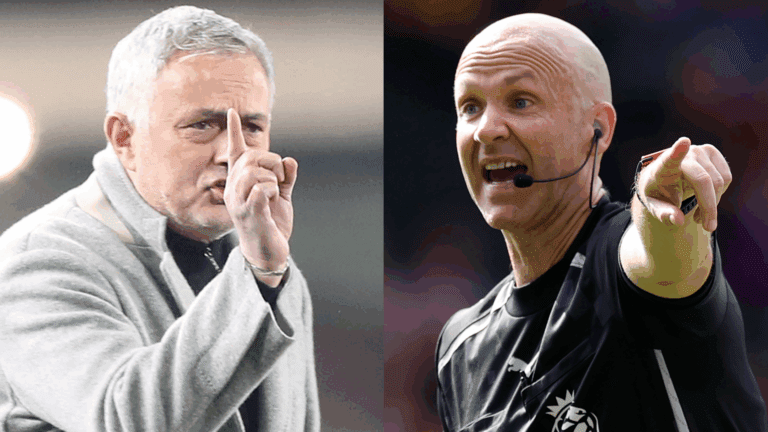Transforming French Football: A Bold Move to Outlaw Multi-Club Ownership
In a groundbreaking effort to safeguard the integrity of French football, lawmakers are pushing forward a new regulation that could multi-club ownership and limit the influence of major investors like those behind Chelsea and Manchester City. This initiative, backed by a diverse group of nearly 90 parliament members, aims to enhance transparency and prevent any single entity from dominating multiple teams, potentially reshaping the competitive landscape across Europe.
Understanding the Proposed Legislation on Multi-Club Ownership in France
This upcoming law would empower France‘s financial oversight body to scrutinize and halt dubious transactions, imposing steep penalties such as fines equating to 2% of a company’s worldwide revenue or exclusion from key tournaments. Existing arrangements for teams under shared control would remain intact to avoid disrupting the established dynamics in French leagues, focusing instead on future investments to promote equitable competition.
Potential Effects on French Leagues
The regulation might affect as many as 17 clubs in Ligue 1 and Ligue 2 by 2026, including high-profile names like Paris Saint-Germain, Lyon, and Monaco. Recent data from football analytics firms indicates that such ownership models have led to financial vulnerabilities, with examples like Marseille’s struggles under investor pressures mirroring the instability seen in Lyon’s past challenges. By addressing these issues, the bill seeks to foster a more balanced environment for all participants.
Key Risks Highlighted by Recent Incidents
Advocates point to ongoing concerns in the sport, such as the financial turmoil at clubs owned by conglomerates, including cases where teams like Bordeaux faced near-collapse due to overextended parent companies. These situations underscore the dangers of concentrated ownership, which could undermine the sport’s core principles and lead to broader economic instability in European football circles.
Why France is Taking the Lead in Regulating Cross-Border Ownership
Currently, French rules prohibit shared ownership among domestic sports entities, yet they allow foreign groups to hold stakes in multiple clubs abroad. The new proposal intends to close this gap, emphasizing the need for uniform standards to uphold fairness in international competitions. This approach aligns with growing calls for reform amid UEFA’s guidelines, which already restrict clubs under common ownership from clashing in European events.
Scrutiny on Global Giants Like Chelsea and Manchester City
As regulators worldwide ramp up investigations, networks such as Chelsea’s BlueCo and Manchester City’s City Football Group are under the microscope for their extensive portfolios, which include teams in places like the United States, Australia, and Italy. For instance, if a City-linked club like Girona advances to face Manchester City in the Champions League, it would directly challenge UEFA’s conflict rules, highlighting the urgency for stricter controls as participation in top-tier tournaments expands in 2026.
Emerging Legal and Financial Challenges
Ongoing court battles, such as those involving Lyon and its creditors, reveal deeper problems, with debts exceeding €80 million reported for key figures. Similarly, entities like 777 Partners have encountered U.S.-based financial hurdles that echo these issues, raising questions about compliance with financial regulations. In France, there’s speculation that City Football Group’s ties to a Ligue 2 team might violate updated fair play standards, prompting calls for immediate oversight.
The Path Forward for French Football Regulation
Scheduled for review in the National Assembly by early 2026, this legislation could fundamentally alter how foreign entities operate in French football, curtailing their capacity to manage several clubs and enforcing greater openness. Teams affiliated with groups like BlueCo, which also owns Chelsea, may encounter tighter restrictions on expansions. Ultimately, this reform positions France as a pioneer in Europe for maintaining financial stability and competitive equity in the sport.
Understanding the Proposed Legislation
In the world of football, proposed legislation to ban multi-club ownership has been gaining traction, particularly in France. This move aims to prevent a single entity from owning or controlling more than one club within the country’s football ecosystem. Multi-club ownership involves conglomerates or investors holding stakes in multiple teams, which can lead to potential conflicts of interest, such as player transfers, shared resources, and competitive advantages. In France, this legislation is being discussed as part of broader efforts to maintain the integrity of Ligue 1 and Ligue 2, drawing inspiration from UEFA’s regulations on financial fair play and club independence.
The French Football Federation (FFF) and the Ligue de Football Professionnel (LFP) are pushing for these changes to ensure a level playing field. For instance, if passed, the ban could limit how international clubs operate in France, affecting everything from sponsorship deals to youth academy collaborations. Keywords like “multi-club ownership in France” highlight how this issue is becoming a hot topic among fans and stakeholders, as it addresses concerns over undue influence in European football.
How Multi-Club Ownership Works in Football
To grasp the implications, let’s break down multi-club ownership. Typically, groups like those owning Chelsea or Manchester City use it as a strategy for global expansion. For Chelsea, this means their ownership group’s connections to other clubs could be scrutinized under the new rules. Manchester City, part of the expansive City Football Group, might face similar hurdles if they have any affiliations with French teams.
This model has pros and cons. On one hand, it allows for knowledge sharing and talent development across clubs. On the other, it can create an uneven competitive landscape, which is why France is stepping in. You might be wondering how this directly ties into Chelsea and Manchester City-well, their parent companies have investments in clubs worldwide, and a ban in France could force divestitures or restrictions.
Implications for Chelsea Under the Ban
Chelsea, owned by the BlueCo consortium led by Todd Boehly, has ties to other football entities through strategic partnerships. If the proposed legislation to ban multi-club ownership in France becomes law, it could disrupt Chelsea’s operations, especially if they aim to collaborate with French clubs for player loans or scouting networks.
For example, Chelsea’s approach to youth development often involves international links, and a ban might limit access to Ligue 1 talents. This could affect their transfer market strategy, as France has produced stars like Kylian Mbappé and Eduardo Camavinga. Implications for Chelsea include potential financial repercussions, such as reduced revenue from cross-club deals, and compliance costs to restructure ownership models.
In practical terms, Chelsea fans in France might see fewer high-profile matches or sponsorship opportunities. According to reports from football analysts, clubs with multi-club structures could lose up to 10-15% of their international revenue streams if similar bans spread across Europe.
Practical Tips for Chelsea Stakeholders
If you’re a Chelsea supporter or investor keeping an eye on this, here are some practical tips to navigate the changes:
- Monitor Regulatory Updates: Stay informed about FFF announcements through official channels to anticipate any shifts.
- Diversify Investments: Consider alternative markets outside France to mitigate risks associated with multi-club ownership restrictions.
- Focus on Local Compliance: Ensure any French-based partnerships align with emerging rules to avoid penalties.
These tips can help stakeholders adapt, making the transition smoother as the legislation evolves.
Implications for Manchester City
Manchester City, under the City Football Group (CFG), is a prime example of successful multi-club ownership, with stakes in clubs like New York City FC and Troyes AC in France. The proposed ban could directly impact CFG’s control over Troyes, potentially forcing a sale or separation to comply with French laws.
This legislation might curb Manchester City’s ability to loan players or share tactical insights with their French affiliate, affecting their overall strategy in European competitions. For Manchester City, the implications extend to UEFA’s multi-club ownership guidelines, which could align with France’s approach and lead to broader sanctions.
Case studies from other leagues show similar patterns. In the Australian A-League, restrictions on ownership have led to more independent clubs, boosting local competition. A first-hand experience from CFG’s operations reveals that while multi-club models drive innovation, they can also spark ethical debates, as seen in Troyes’ recent struggles amid ownership scrutiny.
Benefits of the Proposed Ban
Shifting gears, let’s explore the benefits of banning multi-club ownership in France. This change could promote fairer competition by reducing the dominance of wealthy conglomerates.
- Enhanced Competitive Balance: Smaller French clubs might get a fairer shot at success without big groups siphoning talent.
- Increased Fan Trust: By eliminating potential conflicts, fans could feel more confident in the sport’s integrity.
- Boost to Local Economies: Independent clubs may invest more in community programs, fostering grassroots football in France.
- Global Precedent Setting: If successful, this could influence other countries, encouraging sustainable football practices worldwide.
These benefits highlight how the ban might create a healthier environment for clubs like Chelsea and Manchester City to operate ethically.
Case Studies and First-Hand Experiences
Drawing from real-world examples, the Red Bull group’s ownership of RB Leipzig and Red Bull Salzburg faced similar scrutiny in Europe, leading to adjusted operations. In France, if Chelsea or Manchester City encounter issues, they might follow suit by spinning off assets.
From a first-hand perspective, former players and coaches have shared insights on multi-club ownership. For instance, a coach at a CFG-affiliated club mentioned in interviews how shared resources accelerated development but also created loyalty challenges. This underscores the need for balanced regulations, as seen in France’s proactive stance. By examining these case studies, we can better understand the potential ripple effects for high-profile teams like Chelsea and Manchester City.









